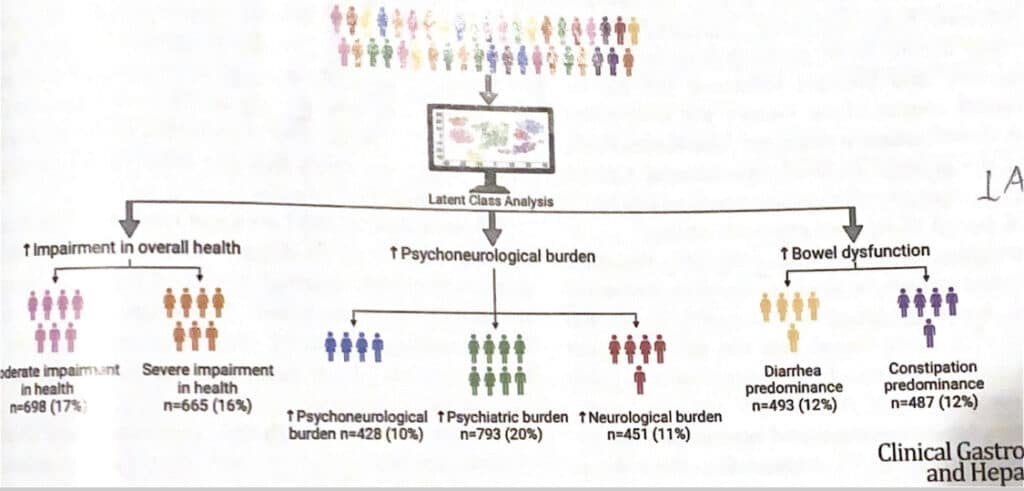
PART 1. Did you know Irritable Bowel Syndrome has 7 Subsets?
Irritable Bowel Syndrome (IBS) is a disorder of gut-brain interaction, characterized by abdominal pain, constipation or diarrhea or all three. Globally IBS affects 7-21% of the population. New data is showing that diet, psychosocial factors and lifestyle can affect the mechanisms and clinical course of IBS. As a result 7 subsets of IBS have been determined.
OLD Subsets of IBS
Bowel habits have been the usual way to determine IBS classifications. Specifically stool patterns such as
- constipation (IBS-C),
- diarrhea (IBS-D) or
- mixed (IBS-M).
NEW Subsets of IBS
New data from the Mayo Clinic under the work of Byale et al. (2023) clustered 4021 IBS patients into 7 distinct IBS subsets.
Health Impairment
- Moderate impairment in health (lower overall health, mental health, pain)
- Severe impairment in health (overall health, mental health, pain)
Psychoneurological Burden
- High Psychoneurological Burden (migraine, neurological disorder)
- High Psychiatric Burden (anxiety, depression, mental health disorder)
- High Neurological burden (migraine, neurological disorder)
High Bowel Dysfunction
- Diarrhea predominant (loose stools)
- Constipation predominant (hard stools)
This is not the first time, IBS has been categorized as other studies have found psychological symptoms, psychological burden and GI symptoms have also been categorized.
Overall, these new categories can help health care teams to target more than just bowel habits and stool patterns to help with IBS symptom management. Stay tuned for part 2. where we will look at some lifestyle intervention ideas for each IBS category!
